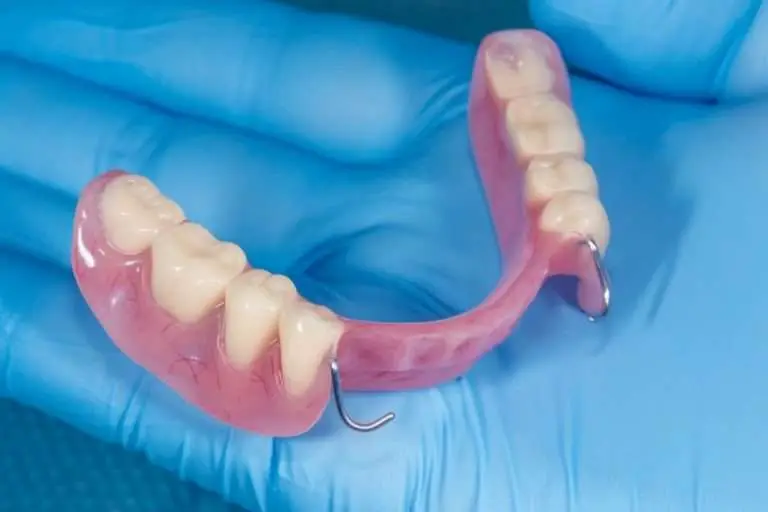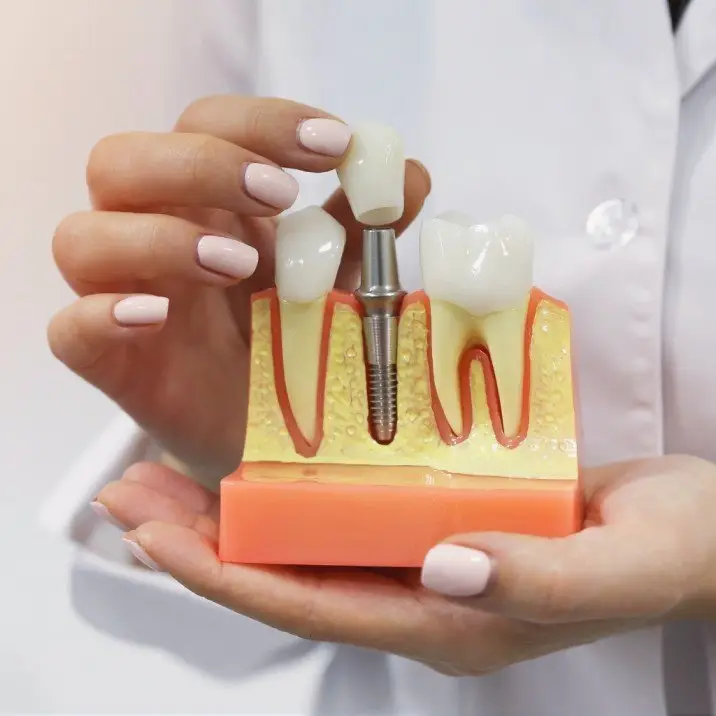When Can I Eat Again After Getting New Dentures?
If you recently received new dentures, you will probably be wondering, “When and what can I eat again after getting new dentures?” To protect your new dentures, you should avoid hard or crunchy foods for 2-3 months.
There are two reasons for this. Below, learn about them and what to eat during the first days after dental surgery.
Table of Contents
Getting New Dentures
Getting fixed dentures by certified experts significantly improves your oral health. It enables you to enjoy foods that may have been difficult to eat due to unstable dentures or partial or complete tooth loss. After the healing process is complete, you will be able to eat all types of food confidently. However, it’s important to note that there are some dietary restrictions in the first few months post-surgery.
After getting dental implants, you should maintain a soft food diet for 2-3 months to let the implants bond with your jawbone correctly. This step is crucial in making them a lasting part of your mouth.
Adapting to new dentures, including eating with them, takes time and patience before finding comfort and ease in their use. It is also essential to keep your mouth healthy while wearing dentures to be able to eat a wider variety of foods eventually.
This first phase is essential for ensuring a smooth transition to wearing dentures permanently, even if you are using dentures for the first time. Start with soft foods to ensure dentures fit correctly and don’t cause discomfort or pain. If you feel pain while eating with new dentures, see our article on experiencing pain after getting fixed dentures on dental implants.
To be able to minimize discomfort during the initial days after surgery, it’s crucial to arm yourself with comprehensive information. Our doctors will provide all the necessary details, including what to expect after receiving your new dentures.
Therefore, opting for a certified ZAGA Center, such as those recommended by us as Smile24h Expert Clinics, ensures you receive care from a highly skilled team. This team oversees your recovery and ensures you have all the support and information you need.
All our Smile24h Expert Clinics, also acknowledged as Certified ZAGA Centers, are committed to the ZAGA Philosophy, which prioritizes a “patient-first approach.” At Smile 24h, we focus on creating the most advanced, customized solutions tailored to each patient’s unique needs.
So, now that we’ve established that following some dietary restrictions after getting new dentures is essential, you may wonder what food to eat during the most critical first three months.
Remember that these guidelines may vary depending on the type of dental implants used in your specific case and their healing process. If you have any questions or problems, it’s best to contact the dentist who gave you the new dentures to get precise tips for eating at the beginning.
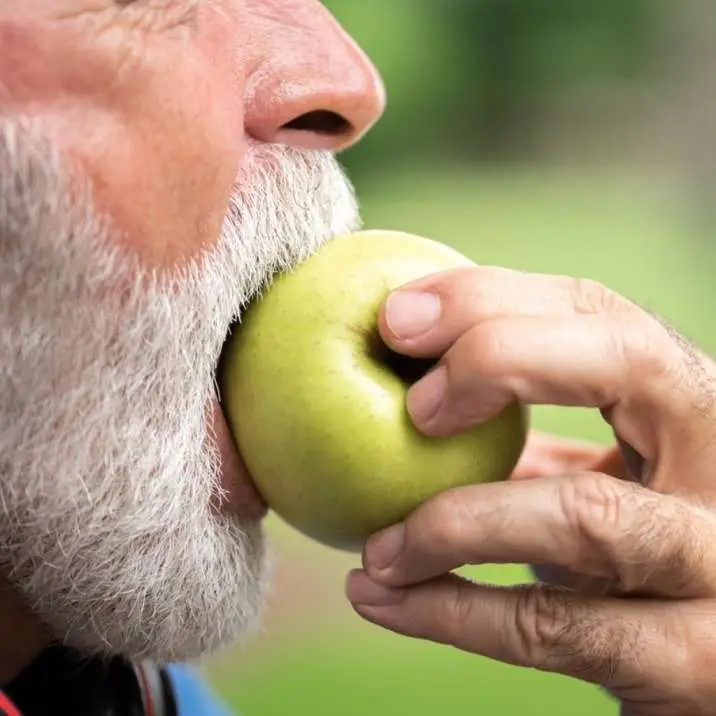

Eating with New Dentures
During the healing phase, you will receive a temporary denture to protect the implant site and ensure a complete set of teeth. Temporary dentures are not as strong as permanent ones. Still, they help you eat in general until you get your permanent set.
Be careful to avoid harming the temporary dentures or implant sites during this time. It’s best to proceed with caution. Transitioning to permanent fixed dentures marks the beginning of a new chapter, during which you can gradually resume eating normally.
Adjusting your diet to fit your new dentures will help you eat comfortably and confidently with them once the healing process is completed. Easy tips like cutting food into smaller pieces or avoiding spicy foods can help.
Ultimately, the goal is to eat comfortably and confidently with your new dentures, marking a significant step towards regaining your smile and the appearance of natural teeth. This journey allows you to enjoy your meals without concerns over missing teeth. It also emphasizes the importance of maintaining oral hygiene and taking proper care of your new dentures to ensure their longevity.
What Can You Eat Right After The Procedure When You Get New Dentures?
Right after your surgery, you should eat soft foods that are easy to chew or don’t require chewing, like soups. This will help your mouth adjust to the new dentures.
It’s essential to minimize forceful chewing during the initial weeks. The first time you eat after getting new dentures, opt for soft foods such as scrambled eggs, mashed potatoes, cooked vegetables, or pudding. Also, eating foods high in protein, such as fish, eggs, peanut butter, and lean meats, can help with healing. Try to choose slow-cooked meals that are easier to chew.
Avoid hot, sticky foods and anything tough that could disrupt the healing process. Once your permanent dentures replace the temporary ones and you adjust to wearing dentures regularly, you can go back to eating normally.
Following your clinician’s guidance after receiving dentures is crucial. Opting for treatment at a Certified ZAGA Center ensures comprehensive support and information before, during, and after the procedure. You will receive advice on which foods to embrace and which to avoid to simplify eating with your new dentures. Initially, it’s recommended to consume soft, easily chewable foods that are gentle on your oral health, steering clear of tough foods whenever possible.
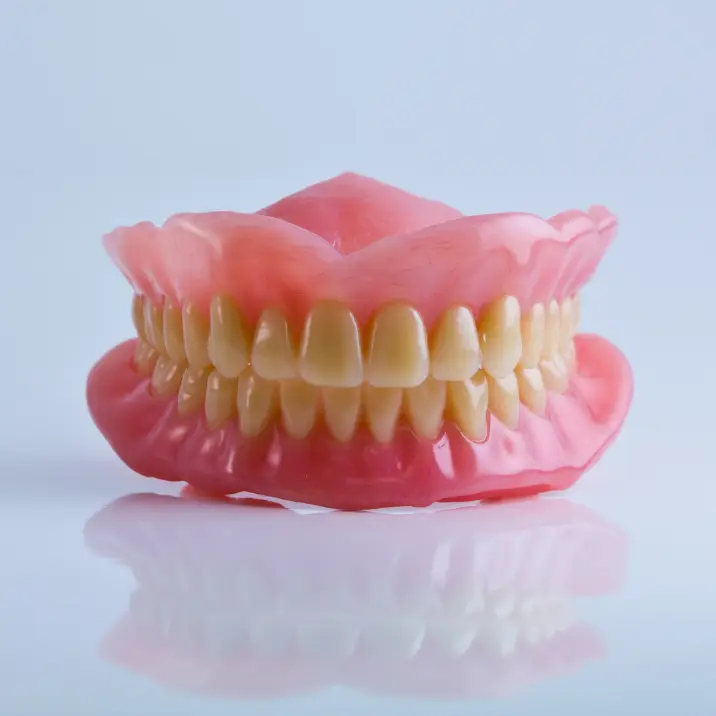
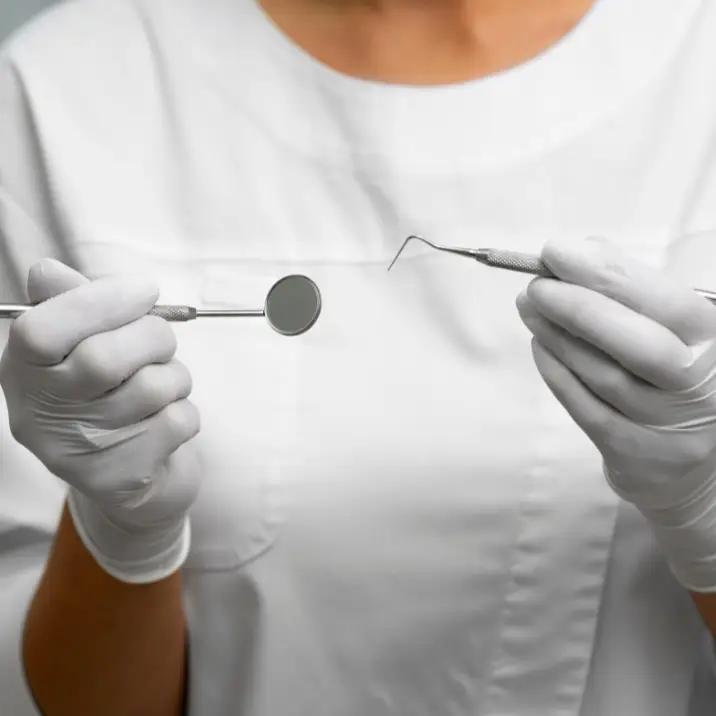
Eating with New Dentures: The Next 3 Months After Surgery
During the first three months, to eat after getting new dentures, begin with soft foods that are easy to chew to minimize discomfort. Gradually incorporate different textures by cutting your food into small pieces for easier management. Opt for soft fruits, vegetables, grains, and tender meats. It’s important to avoid hard, sticky, or scorching foods to prevent damage or irritation to your dentures and gums. Additionally, be mindful of the food temperature. Extremely cold or hot items may cause discomfort or complications, particularly impacting the gums and soft tissues that are still adjusting to the dentures. Consuming foods at moderate temperatures ensures a more comfortable healing process.
Finally, keeping your dentures clean is vital. Use a recommended denture cleanser for hygiene and to keep them in good condition. Regular cleaning helps avoid trapped food particles and reduces irritation risks. These tips will ease your transition, ensuring a comfortable and healthy experience with your new dentures.
When can I eat again after getting new dentures?
If you recently received new dentures you will probably be wondering “When and what can I eat again after getting new dentures?” To protect your new dentures you should avoid hard or crunchy foods for 2-3 months.
What can you eat right after the procedure when you get new dentures?
Right after your surgery you should eat soft foods that are easy to chew or don’t require chewing like soups. This will help your mouth adjust to the new dentures.
What should you eat during the first 3 months after surgery?
In the first three months to eat after getting new dentures begin with soft foods that are easy to chew to minimize discomfort. Gradually incorporate different textures by cutting your food into small pieces for easier management.
What types of foods should be avoided after getting new dentures?
It’s important to avoid hard sticky or scorching foods to prevent damage or irritation to your dentures and gums.
Why is it important to follow dietary guidelines after getting new dentures?
Following your clinician’s guidance after receiving dentures is crucial. Opting for treatment at a Certified ZAGA Center ensures comprehensive support and information before during and after the procedure.



